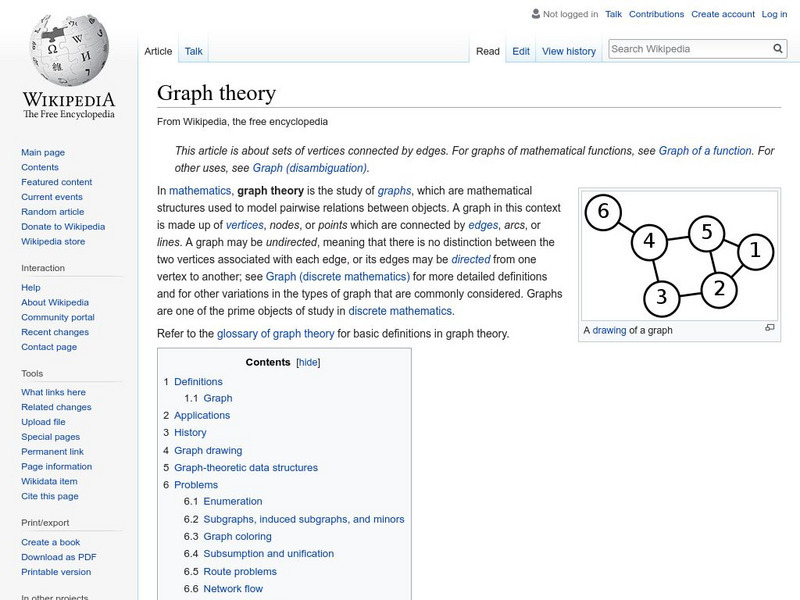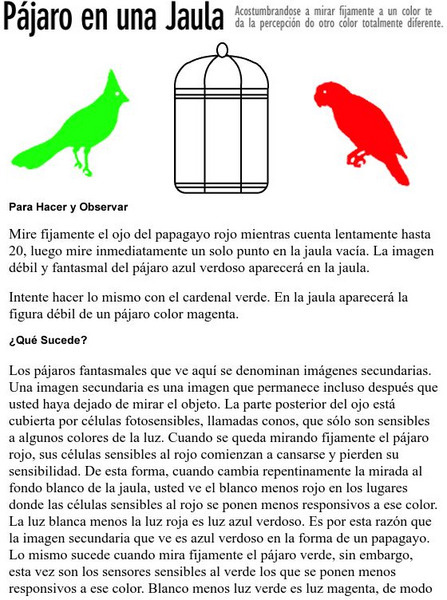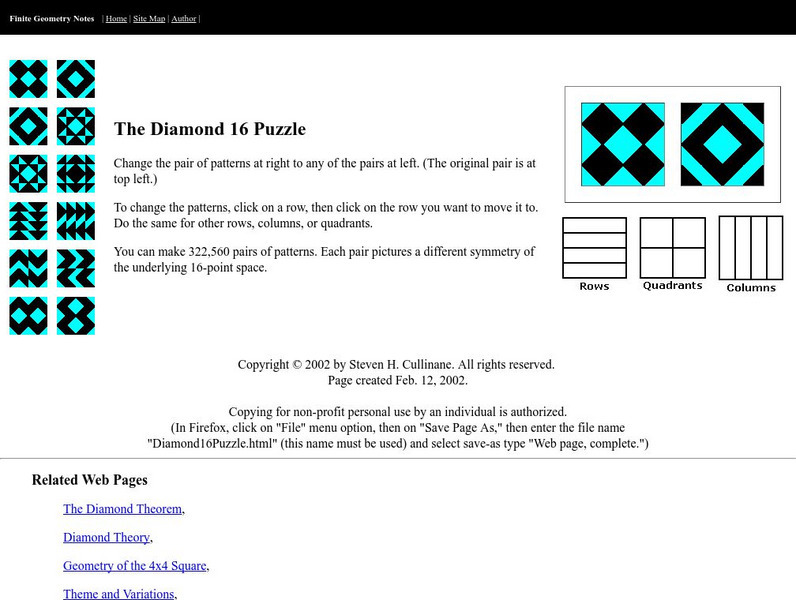TeachEngineering
Teach Engineering: Using Graph Theory to Analyze Drama
Students analyze dramatic works using graph theory. They gather data, record it in Microsoft Excel and use Cytoscape (a free, downloadable application) to generate graphs that visually illustrate the key characters (nodes) and...
Wikimedia
Wikipedia: Graph Theory
Wikipedia provides an introduction and overview of graph theory. In addition to introducing the basic terms, there are related links to classic problems in graph theory such as the traveling salesman problem and Dijkstra's algorithm.
Other
Bielefeld Univ.: Simulation of Lattice Gauge Theories
This site from the Bielefeld University has links to papers and plots dealing with gauge theory.
Open Curriculum
Open Curriculum: Timbre: The Color of Music
To provide an introduction to the concept of timbre and words used to describe
Physics Classroom
The Physics Classroom: Light Waves and Color: Wavelike Behaviors of Light
In this series of interactive physics tutorials, students will focus on the wavelike nature of light.
Davidson College
Davidson College: Electronic Structure of Coordination Compounds
A list of five virtual chemistry topics with Java applets on the electronic structure of coordination compounds. Covers crystal field theory, CFT energy level splitting, color in gems, the spectrochemical series, and ligand properties.
Exploratorium
Exploratorium: Pajaro en Una Jaula
Two examples of optical illusions that demonstrate aspects of how we perceive color.
California State University
Warm Sun and Too Cool Moon
Basic color theory introduced in a creative way. Students gain understanding of warm and cool colors as they each choose a palette and paint a sun or a moon.
National Gallery of Art
National Gallery of Art: Henri Matisse
An in-depth look at how Matisse used color and at how contemporary theories about optics and color influenced his work. The essay describes how a group of artists along with Matisse--Van Gogh, Gauguin, and Seurat among them--became tired...
PBS
Scottsdale Museum of Contemporary Art: Hofmannopoly [Pdf]
If you have access to a color printer then you can print and play Hofmannopoly! Assemble the game board according to the directions and grab a friend to play. You will be an art student traveling through the world of Hans Hofmann. Learn...
PBS
Pbs: Hans Hofmann for Teachers (Lesson Plans)
Go directly to the lesson plans developed as complements to the PBS documentary "Hans Hofmann: Artist/Teacher, Teacher Artist." These classroom resources were designed to explore the influential theories of the artist.
TeachEngineering
Teach Engineering: Graphing Your Social Network
Students analyze their social networks using graph theory. They gather data on their own social relationships, either from Facebook interactions or the interactions they have throughout the course of a day, recording it in Microsoft...
Mathigon
Mathigon: Graphs and Networks: Map Colouring
This lesson focuses on map coloring and the problem of proving that 4 colors would work for all maps. Francis Guthrie had to color a map of counties in England. He observed that four colors seemed to suffice for any map he tried, but he...
Other
Understanding Race: Only Skin Deep
This interesting site presents the theory that skin color is not due to race but is a function of life under the sun.
Other
Finite Geometry Notes: Diamond 16 Symmetry Puzzle
At this site see if you can solve the "Diamond 16" puzzle. Change the patterns to create ordinary or color exchange symmetry. This is just one of several challenging puzzles at this site. Links to similar puzzles and games.
Estrella Mountain Community College
Online Biology Book: Cells: Origins
Through full-color images and concise information, learn about the origin of cells. Discover some of the notable studies surrounding the history of life on Earth.
TeachEngineering
Teach Engineering: Bubbles and Biosensors
Students learn that color swirls on the bubble surfaces are caused by refraction. Then they apply this theory to thin films in general, including porous films used in biosensors, listing factors that could change the color that become...
Curated OER
Only Skin Deep
This interesting site presents the theory that skin color is not due to race but is a function of life under the sun.
Wikimedia
Wikipedia: Quark
This site from the encyclopedia Wikipedia provides an in-depth description of quarks describes different characteristics about them. Mentions how they are different from leptons, the theory of quantum chromodynamics, and the process of...
Physics Classroom
The Physics Classroom: Wavelike Behaviors of Light
How light waves demonstrate their wave nature by reflection, refraction, and diffraction.
Concord Consortium
Concord Consortium: Stem Resources: Excited States and Photons
Students are able to explore the effects of energy on excitation of atoms through simulations, then relate this information to photons at atoms' absorption and emission of light. Multiple-choice and short answer questions are found...
Science Education Resource Center at Carleton College
Serc: Asbestos Hazard Assessment
This interactive site introduces students to concepts related to asbestos and how geologists analyze asbestos in building materials. The site is divided into three components: the geology of asbestos, identifying asbestos in the lab, and...
Science Struck
Science Struck: 8 Albert Einstein Inventions That Impacted the World
Describes the refrigerator invented by Einstein and many of his discoveries in physics.
Other popular searches
- Kandinsky Color Theory
- Color Theory Projects
- 3 Color Theory
- Art Color Theory
- Additive Color Theory
- Quilting Color Theory
- Color Theory With Painting
- Josph Albers Color Theory
- Color Theory Lesson Plans
- Fall Autumn Color Theory
- Op Art Color Theory
- Color Theory K 1








![Scottsdale Museum of Contemporary Art: Hofmannopoly [Pdf] Website Scottsdale Museum of Contemporary Art: Hofmannopoly [Pdf] Website](https://content.lessonplanet.com/knovation/original/27570-09cacaa3c28462bb5b48380976d49226.jpg?1661416998)









